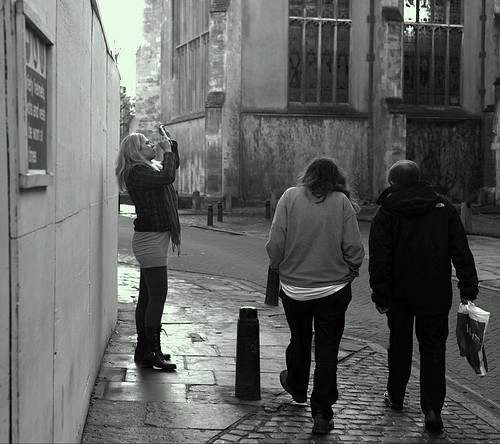Honey Hill
Hairy tales
From today’s Guardian.
Public knowledge about dandruff in Pakistan’s army comes mainly from a study called Knowledge, Attitude and Practice Regarding Dandruff Among Soldiers, written by Naeem Raza, Amer Ejaz and Muhammad Khurram Ahmed, published in 2007 in the Journal of the College of Physicians and Surgeons, Pakistan.
Raza, Ejaz and Ahmed surveyed 800 male soldiers of all ranks, ascertaining each soldier’s knowledge about, and personal experience with, dandruff. The survey was “designed keeping in mind the general taboos of our region about dandruff, which included visits to doctors, homeopathic physicians or ‘akims’, use of oils, any home-made remedies or commercial products”.
If this sampling of soldiers was truly representative, we now know that approximately 65% of Pakistani soldiers have, or have had, dandruff “either permanently or periodically”.
“Almost two thirds of the respondents stated to remain tense and embarrassed because of their dandruff.”Noting that the “media has played an important role in making people think like that”, the study concludes with a recommendation. Healthcare professionals should make a greater effort to educate the populace.
Quite so. But Pakistan’s leaders should nevertheless keep their hair on (as we say in the UK).
If Car Companies Were Run Like Tech Companies
Lovely spoof by David Pogue.
LAS VEGAS, Jan. 9 — Here at the annual Consumer Electronic Automotive Show, the largest trade show in the world, the carheads have again made their annual pilgrimage to see what new breakthrough vehicles will be finding their way into American garages in the new year.
Axxle, the Cupertino, Calif., automaker, is again notable by its absence. But even though its perfectionist founder, Steve Hubs, recently died, the company’s impact was everywhere at the show.
When Axxle announced its sleek, simple-to-drive iCar last year, automotive blogs like Gizmoto and Engearjet savaged it for its lack of a windshield, doors, roof and body. “Only the fanboys would want to drive a flat glass surfboard,” went a typical remark.
Once the iCar went on sale, however, it rapidly became the fastest-selling new vehicle in history. And at this year’s show, imitators are everywhere. Many are based on Andrive, a design offered by the mobile billboard giant Gogle (whose unofficial motto is, “Don’t be civil”). Andrive is regarded as a less polished but free chassis that closely resembles the iCar.
Shoppers!
A workflow for remote collaboration
I use Dropbox a lot, but so far haven’t really exploited its potential for remote collaboration. So I was intrigued to find this illustration on Quentin’s blog outlining a workflow designed by Rick Lecoat at Shark Attack Design. Once you’ve seen it, it looks obvious. But then that’s the defining characteristic of most great ideas.
Havel’s heart
Vaclav Havel has died, at the age of 75. David Remnick has a very nice tribute to him in the New Yorker.
In a parallel universe, in a luckier realm, Havel would have lived out his life as a Czech epigone of Ionesco and Beckett, a carefree son of privilege, free to write, to pursue his pleasures, to listen to the rock ‘n roll he loved. Instead, like a living figure from Kafka, he was born to a system where absurdity, not law, ruled; calmly, resolutely, he pursued a life of dissidence, led a revolution, and then assumed a home in the Castle, the seat of power in liberated Prague.
In 2003 Remnick wrote a good profile of Havel as he prepared to leave the Presidency of the Czech Republic. Remembering the interview he had with the great man, Remnick writes that
“He gave me as a gift a marvelous book of photographs portraying his life as an artist and politician. He signed it to my wife, who had covered the 1989 revolution in Prague with me, in lime-green marker and then drew a little heart, in red, next to his signature. I have a hard time imagining any other president goofing around like that.”
That rang a bell for me. I met Havel once, just after he was elected President. He was on a State Visit to Britain and the Royal Shakespeare Company, prodded by Harold Pinter and others, gave a party for him in the Barbican to which I was invited. (I wrote a piece about it for the Observer but since this was long before the Web I cannot find my copy of it.) The place was thronged with luvvies (I remember Jeremy Irons squiring Edna O’Brien around, for example; Pinter with Lady Antonia Fraser; etc., etc.) Two things stand out in my memory.
The first was a conversation I had with one of the President’s bodyguards in which I discovered that before he took up his present line of work he had been an actor. So, I asked, how had he qualified for his current duties? He replied that he had always been keen on karate.
My other memory is of someone asking Havel to autograph a copy of his book, Living in Truth. He did so — and drew a picture of a heart alongside his signature. Like Remnick many years later I came away wondering how many Heads of State would do such a thing.
The cookie monster cometh
This morning’s Observer column.
Needless to say, this intrusion of EU red tape into Britons’ ancient right to do as they damn well please generated much heated commentary. The jackbooted thugs of Brussels were, we were told, going to “kill the internet”. But the law is the law and, alarmed by the lack of preparedness of British industry, the government negotiated a year-long “lead-in period” to give businesses time to adapt to the new reality.
We’re now midway through that period, and the information commissioner – the guy who will have to enforce the new rules – has just issued a half-term report on how things are going. His verdict, he writes, “can be summed up by the schoolteacher’s favourite clichés: ‘could do better’ and ‘must try harder’.”
G2Z est arrive!
Jaws
Someone I ran into in the wonderful Cambridge Zoology Museum yesterday.






